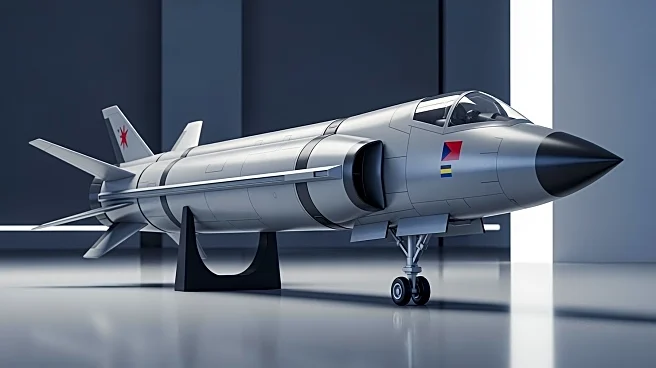What's Happening?
Iran is reportedly advancing its ballistic missile program with assistance from China, despite the reimposition of United Nations sanctions. European intelligence sources have identified shipments of sodium
perchlorate, a key component in missile propellant, arriving from China to Iran. These shipments are part of Iran's efforts to replenish its missile stock following a conflict with Israel. The sanctions, reinstated under the 'snapback' mechanism of the 2015 nuclear deal, prohibit activities related to ballistic missiles capable of delivering nuclear weapons. However, the specific chemical involved is not explicitly banned, allowing China to argue compliance with international regulations.
Why It's Important?
This development underscores the complexities of enforcing international sanctions and the geopolitical dynamics at play. Iran's missile program poses a significant challenge to regional stability and international security. The involvement of China, a major global power, complicates diplomatic efforts to curb Iran's military capabilities. The situation highlights the limitations of current sanctions and the need for coordinated international action. The U.S. and its allies may face increased pressure to address these challenges through diplomatic or economic means.
Beyond the Headlines
The situation raises questions about the effectiveness of international sanctions and the role of major powers in global security. China's involvement reflects its strategic interests and its stance on unilateral sanctions. The ongoing developments could influence future negotiations on Iran's nuclear program and impact U.S.-China relations. The broader implications for non-proliferation efforts and regional power dynamics are significant, as stakeholders assess the potential for escalation or resolution.








